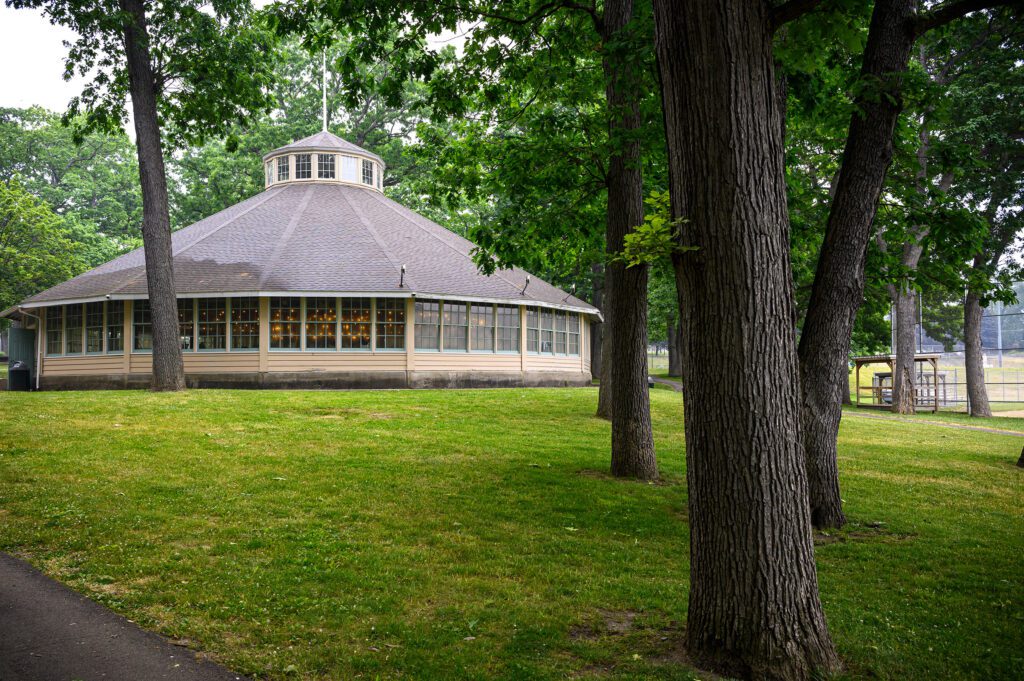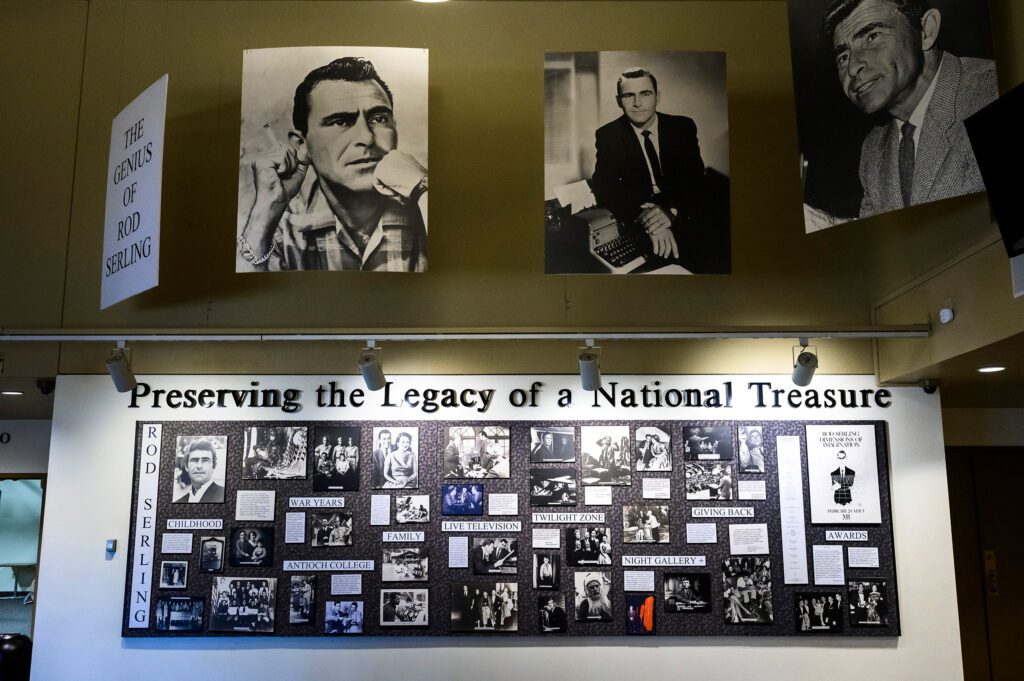You Can Go Home Again in Binghamton
When asked what Binghamton meant to legendary screenwriter and The Twilight Zone creator Rod Serling, his daughter Anne simply turns to the late great’s own words:
“Everybody has to have a hometown, Binghamton’s mine. In the strangely brittle, terribly sensitive make-up of a human being, there is a need for a place to hang a hat or a kind of geographical womb to crawl back into, or maybe just a place that’s familiar because that’s where you grew up. When I dig back through memory cells, I get one particularly distinctive feeling – and that’s one of warmth, comfort and well-being. For whatever else I may have had, or lost, or will find – I’ve still got a hometown. This, nobody’s gonna take away from me.”

These words, like her father’s memory, are very near and dear to Anne Serling, who fondly remembers her own visits to the Southern Tier where her family kept a summer cottage. In those days, her father would make a pilgrimage of sorts back home to Binghamton where he spent his formative years. He’d do it alone – visits to his old house, the carousel at Recreation Park, the places that encapsulated his experience growing up.
“I think he just wanted to relive the memories he was desperately missing,” Anne said. “Binghamton was just this idyllic childhood that he had … It was just this lovely childhood that of course changed when he went into [World War II].”
“It was important for him to come back,” she said. “This was sort of a touchstone for him.”
His proverbial fingerprints are all over this city, be it the many references made on The Twilight Zone or the many tributes to him across the area. The high school he attended is now home to the Rod Serling School of Fine Arts, for one example. There’s a plaque on the bandstand in Recreation Park, which also hosts a carousel etched with famous scenes from Twilight Zone. Inside the Forum Theatre sits a bust of his visage and a wall detailing his indelible contributions to pop culture.

“What I mostly think is how stunned my father would be that he’s been remembered like this,” Anne said. “And I always think too of how proud his parents would have been of their boy. For me personally, it’s such an honor.
“He didn’t think he would be remembered and his quote was he just wanted to be remembered as a writer,” she said.
The show he created when television was still a novelty was decades ahead of its time with episodes intended to provoke thought more so than frighten. In fact, Rod Serling was a staunch advocate of social justice and embedded his message against prejudice into numerous episodes. It was just a reflection of his character and his beliefs, according to Anne.
There was perhaps no greater influence on his career than his high school English teacher and mentor Helen Foley, who encouraged him to use his gift for writing and performance despite his reputation as a class clown. He’d go on to pen a great majority of the 156 episodes that ran over the course of just five seasons from 1959 to 1964. He famously starred in all of them as a solemn host. But, in reality, he was warm and funny, according to Anne. She authored a biographical account of his personal life As I Knew Him: My Dad, Rod Serling. Dad always encouraged her to write.
Rod Serling’s writing certainly cemented a legacy that lives on in Binghamton, where visitors can not only admire the tributes, but walk the same streets and in many cases see the same sights he would have encountered. The famous episode “Walking Distance” was based on his own experiences in Recreation Park, a place that modern travelers can visit and even ride the antique carousel there. It’s this kind of pastime that makes Binghamton a destination for those wanting to unplug and, in many ways, it remains the idyllic setting that Rod Serling held so dear. Now you can find out why.





